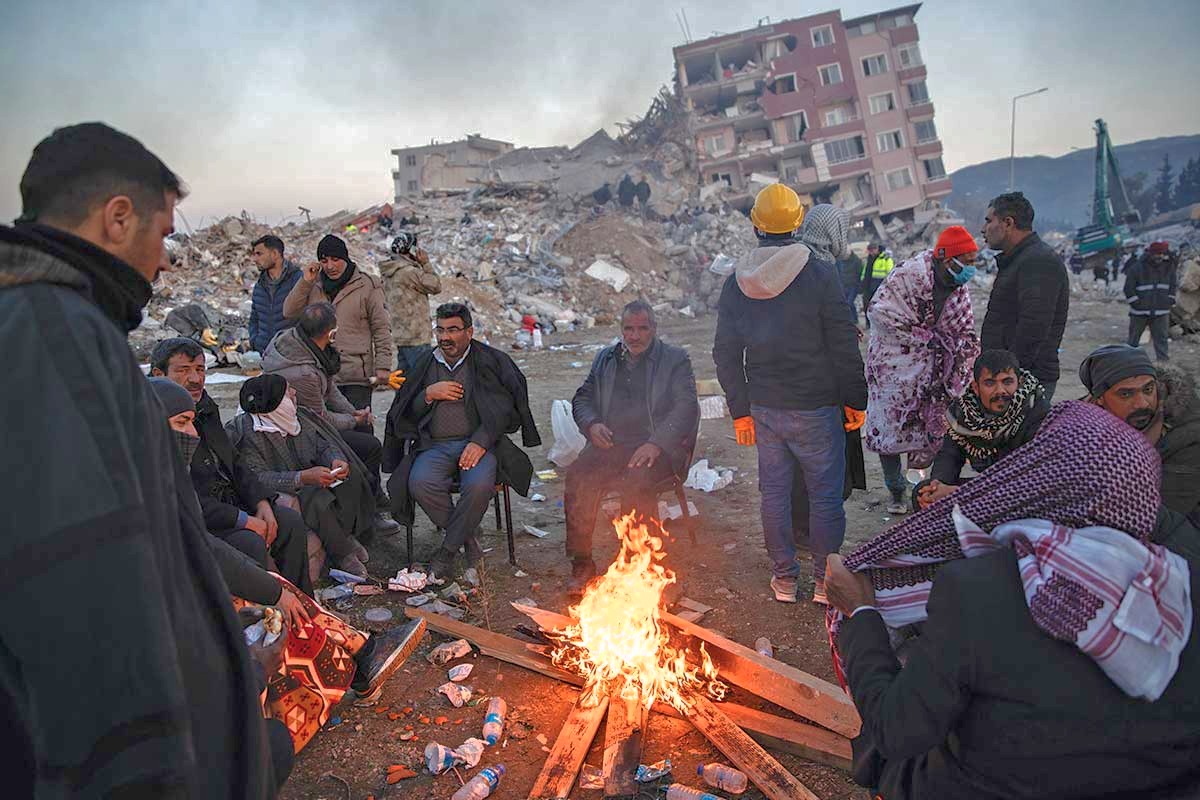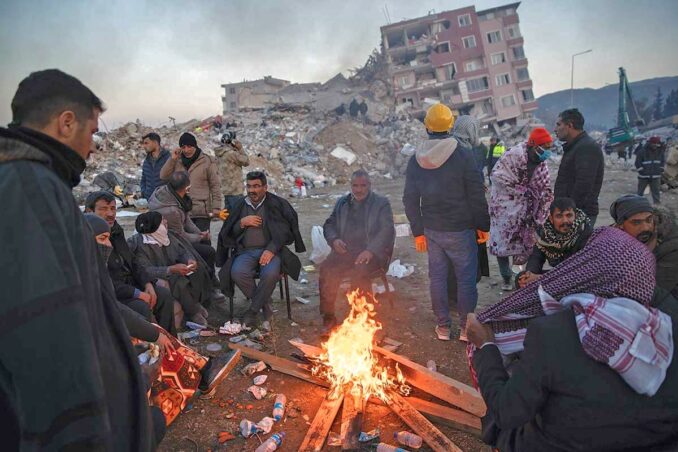

The author of this article, published June 2 on lapluma.net, is a former Venezuelan military officer and diplomat and current international analyst. Twitter:@sergioro0701. Translation: John Catalinotto.
The coalition that supported President Recep Tayyip Erdogan won the presidential elections of Türkiye held on May 28. Although Erdogan’s victory in this second round was expected, the broad support his coalition received in the parliamentary elections that accompanied the first round on May 14 came as a surprise.


Despite the devastation and death caused by the Feb. 6 earthquake and corruption in the poorly regulated construction industry, Türkiye’s president was reelected.
The presidential system established in the country’s Constitution after the April 2017 referendum ensures that the head of state possesses strong powers for the conduct and control of the country. An opposition-majority parliament could play a counterbalancing role to the presidential authority. However, the opposition is a minority.
In foreign policy, Erdogan will continue his management of the “balance” between the West and its institutions on the one hand, and Russia, China and his own on the other. His goal is to take advantage of the contradictions.
In any case, a sensible analysis should consider that in his new mandate, the Turkish president will face a critical economic situation marked by a large deficit in the trade balance and a debt that, without being very high, will be affected by the population’s enormous needs.
The country’s credit risk rate is very high, which, together with the aforementioned trade deficit, could generate a tsunami in the economy. In addition to this, expert estimates have determined that U.S.$108 billion are needed to restore the damages caused by the disastrous earthquake on Feb. 6.
Likewise, during the election campaign, Erdogan and his coalition spent large sums of state money that must be replaced as soon as possible. All this puts the reelected Turkish president under pressure, because he will be forced to seek support abroad. The U.S. and Europe will exploit this situation to force him to make concessions on several issues, but especially in relation to the conflict in Ukraine, in which Erdogan has apparently maintained neutrality.
The Dardanelles and the Bosporus
Similarly, NATO is likely to exert pressure on Türkiye to take a firmer position controlling Russia’s use of the Dardanelles and the Bosporus, which connect the Black Sea to the Mediterranean and over which Türkiye has full sovereignty. The West will even try to make Ankara violate the Montreux Convention of 1936, which grants full rights to Russia for the transit of its civilian ships, as the country borders the Black Sea. Thus, an attempt will be made to affect and/or impede Russia’s trade through this important sea route.
On the other hand, it is likely that Erdogan’s government officials will increase support for the Crimean Tatar Muslims, one of whose organizations, the Noman Çelebicihan battalion, has been declared a terrorist organization by Russia. It is in Washington’s interest for Erdogan to play a greater role in this area, because it simultaneously fulfills two objectives: to generate conflict within Crimea and to weaken Russia’s relationship with Türkiye.
Another issue Erdogan will have to resolve, if he wants to curry favor with the West, is to make a definitive decision regarding his veto of Sweden’s NATO membership. It is most likely that he will end up accepting it in exchange for some consideration yet to be determined.
Regarding the Syrian conflict, Türkiye has maintained its participation in the quadripartite mechanism sponsored by Russia and of which Iran is also a member. The U.S. government has not expressed total objection to this negotiation; it would aspire to participate –– even if only indirectly –– to manage it according to U.S. interests.
Washington’s interests
It would be in Washington’s interests for Ankara to exert pressure on Damascus in favor of a constitutional reform leading to a transitional government and new elections in Syria. In this sense, the U.S. intends to have Türkiye work on its behalf. It remains to be seen whether Erdogan accepts this role or whether he will limit his role to pursuing his own goals in this negotiation. These relate to the confrontation of the “Kurdish problem,” considered of transcendental importance among Erdogan’s political objectives.
For the Turkish president, the management of contradictions is present in the day-to-day running of his administration. His ideology is aimed at rebuilding Greater Türkiye, i.e., making Türkiye a power that exerts great regional influence and forces the world powers to consider Ankara as a major player in decision-making in Asia and the world.
This could bring Türkiye into discord with China, given Ankara’s support for the East Turkestan Islamic Movement (ETIM), a Uyghur organization operating in China’s Xinjiang province and considered terrorist by Beijing. The Uyghurs are a Turkic Muslim ethnic group with strong ties to Türkiye.
It is a real dilemma to know how President Erdogan will handle himself in the future in this framework of contradictions that shapes Türkiye’s international political identity. It is likely that he will persevere in what has been his practice up to now.
On the one hand, Türkiye is a member of NATO, together with the United States and Britain, and on the other, is a “dialogue partner” of the Shanghai Cooperation Organization (SCO), together with China and Russia. Ankara has recently applied to join the BRICS group, contrary to Washington’s desire to keep Türkiye under its control. It is the only NATO country that has relations with Afghanistan and an embassy in Kabul. [BRICS stands for Brazil, Russia, India, China and South Africa.]
So far, Erdogan has been able to circumvent this tangle of incompatibilities, even acting successfully as a mediator with the United Nations to achieve the grain agreement between Russia and Ukraine that allowed Ukraine’s cereals to be exported. These cereals are vital foodstuffs, whose shortage could increase the levels of poverty and famine in several parts of the planet, particularly in Africa.
On the other hand, Türkiye is a reliable exporter of weapons to Ukraine, playing a leading role in sending drones to Kiev. It will have to be observed whether its capacity for “miraculous balance” can be sustained over time. Given the huge implications this has, the world will be keeping a close eye on Erdogan’s “performance.”
Africa is rising, the days of colonialism are finished: This is the call being echoed…
Several immigrant groups and their supporters rallied outside the federal courthouse in Philadelphia on May…
Thousands of construction workers and teachers in at least seven provinces throughout Panamá took to…
El imperialismo estadounidense sufrió su segunda derrota histórica el 30 de abril de 1975 a…
As part of Workers World newspaper’s coverage marking the 50th anniversary of the liberation of…
From the PFLP Central Media Office The following statement from the Popular Front for the…